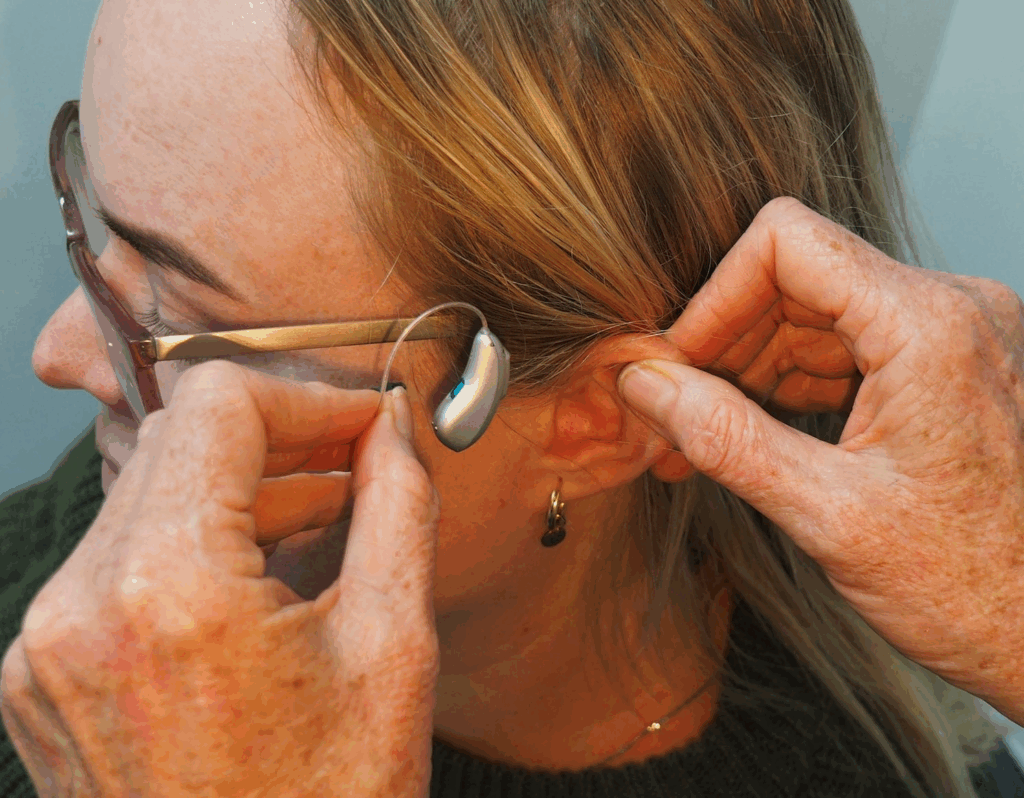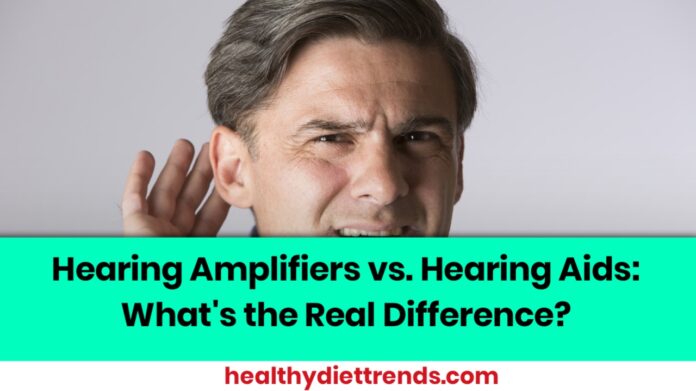When it comes to improving hearing, many people are unsure whether they need a hearing amplifier or a hearing aid. While they might look similar and both make sounds louder, these devices serve very different purposes. Here’s a breakdown of how they differ, and which one might be right for you or a loved one.
What Are Hearing Amplifiers?
Also known as personal sound amplification products (PSAPs), hearing amplifiers are designed to amplify all sounds in the environment — including voices, background noise, and everything in between.
They are commonly used by:
- People with normal hearing who want to boost sound in specific situations (like bird watching or listening in lectures).
- Individuals who are not yet ready for a hearing aid.
Key characteristics:
- Over-the-counter (no prescription needed)
- Not regulated as medical devices
- Inexpensive and easy to buy online or in stores
- Amplify sound without customization
What Are Hearing Aids?
Hearing aids are FDA-regulated medical devices that are custom-fitted and programmed to treat specific types of hearing loss. They are prescribed based on an individual’s audiogram — a test that shows the degree and type of hearing loss.
Key characteristics:
- Tailored to your specific hearing loss
- Help filter and clarify speech in noisy environments
- Often include advanced features like Bluetooth, feedback suppression, and noise reduction
- Require professional fitting and ongoing adjustment

Key Differences at a Glance
| Feature | Hearing Amplifiers | Hearing Aids |
|---|---|---|
| Purpose | General sound amplification | Medical treatment for hearing loss |
| Regulation | Not FDA-regulated | FDA-regulated medical device |
| Customization | No | Yes, tailored to hearing profile |
| Cost | $30–$300 | $1,000–$6,000+ |
| Use in Hearing Loss | Not recommended | Specifically designed for it |
| Where to Buy | OTC or online | Audiologists or hearing clinics |
Which One Should You Choose?
If you have diagnosed hearing loss, hearing aids are the safe, effective, and medically appropriate solution. They help not only with volume but with clarity, which is crucial for understanding speech and interacting socially.
If you’re just looking to boost sound temporarily — like for a lecture or while watching TV — and you don’t have hearing loss, a hearing amplifier could be a simple and affordable option.
Still Unsure? Get a Hearing Test First
Before making any decisions, it’s best to get your hearing tested by a licensed audiologist. This ensures you’re choosing the right solution for your needs — and not making your hearing worse with the wrong device.
Also Read : What Type of Psychotherapy Is Best for Anxiety?



